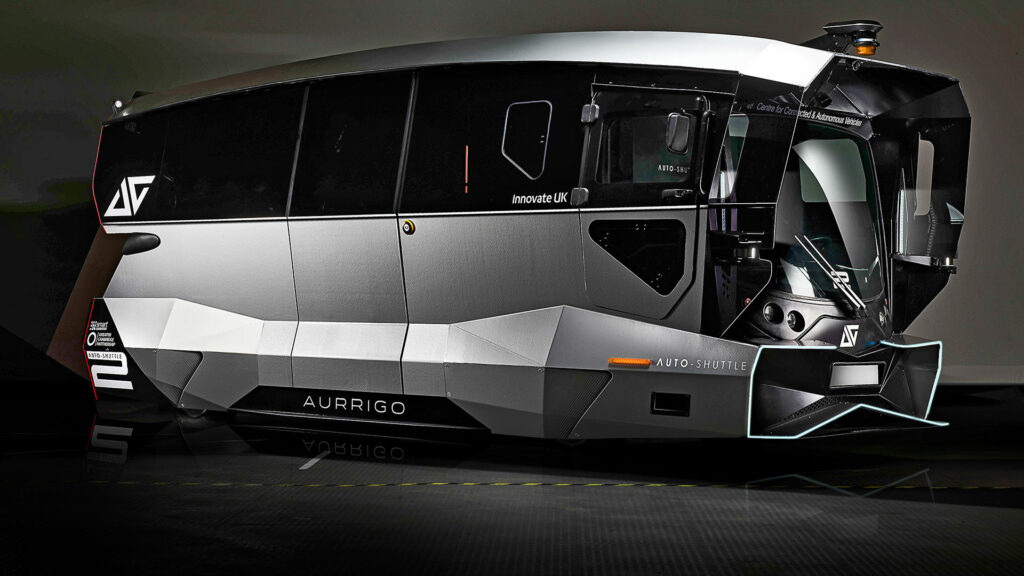Aurrigo International PLC, a global leader in transport technology solutions, has announced its pivotal role in the groundbreaking EU-Funded Living Lab for Autonomous Electric Vehicles project. Aurrigo's Auto-Shuttle vehicles will spearhead this initiative, showcasing their autonomous capabilities with a safety driver on board, while aiming to transition towards remote supervisor monitoring—a revolutionary development in the realm of public transportation autonomy. How will the public feel about public transport with no driver?
This project signifies a significant leap forward in autonomous public transport, with the ultimate goal of eliminating the need for a safety driver within the vehicle, relying instead on remote supervision. The project's primary objectives include establishing trust in autonomous driving through a robust transnational safety framework, as well as fostering user acceptance and confidence. This ambitious undertaking is being carried out in close collaboration with citizens, cities, operators, academia, industry stakeholders, and policymakers.
What sets this project apart is its diverse scope, encompassing multiple cities in different countries. Participants will gain invaluable experience dealing with various street layouts, road conditions, and public attitudes toward autonomous vehicles. Additionally, this phase of the project will explore integration with trip planning applications used in these cities.
The project will unfold in European cities including Prague, Brno, and Milton Keynes, and is a collaborative effort involving industry partners, operators, municipalities, and University College London, serving as the project leader.
For Aurrigo, this European project marks a significant milestone in its journey toward autonomous transportation. CEO David Keene expressed his enthusiasm, stating, “Although we work all over the world, this is the first Auto-Shuttle deployment in mainland Europe for Aurrigo, and we are delighted to be working with such a prestigious group of partners to move towards this important step in autonomous public transport. The medieval, cobbled streets of Prague built before cars or buses were dreamt of are in stark contrast to the modern roads of Milton Keynes, which shows the importance of testing in multiple cities.”
Keene emphasized the unique advantages of the Aurrigo Auto-Shuttle, pointing out that the company develops the vehicle, software, and autonomous driving hardware in-house, ensuring seamless integration for optimal performance in the autonomous landscape.
A key component of the Aurrigo Auto-Shuttle's technology suite is the integration of LiDAR and cameras with the company's proprietary in-house developed software. This combination provides the Auto-Shuttle with a constant, 3D, all-weather view of its surroundings, enhancing safety and efficiency.
Professor Bani Anvari, an expert in Intelligent Mobility at University College London, shed light on the goals of the LivingAPT project: “Cities face challenges such as reducing emissions, improving the safety and mobility of cyclists or pedestrians, increasing quality of life for citizens. Driverless shuttles or pods can be a game changer for cities as they address many of these challenges. However, current solutions lack a transferrable regulatory and safety framework among European cities. Low public acceptance in combination with high investments in the new technology (including insurance and safety drivers) are a barrier to adoption for many cities.”
“LivingLAPT will deliver sustainable driverless shuttle and logistics services among various European cities by phasing out the need for safety drivers in shuttles and moving towards remote operators who oversee multiple services simultaneously. This will be achieved through a robust transnational safety framework as well as promoting user acceptance and trust in close collaboration with citizens, cities, operators, academia, industry, and policymakers.”
Aurrigo's commitment to the project is evident through its substantial financial contribution. Ninety percent of the project's costs, totalling €274,820, are funded by the EU via the European Institute for Innovation and Technology (EIT), with the remaining 10 percent, amounting to €30,506, provided by Aurrigo. The deployment of Aurrigo Auto-Shuttles is scheduled to commence on September 19th.
Aurrigo, headquartered in Coventry, UK, has established itself as a premier international provider of transport technology solutions. The company specialises in designing, engineering, manufacturing, and supplying autonomous vehicles and OEM products to the automotive and transport industries, with a particular focus on aviation. Aurrigo is renowned for its expertise in autonomous and semi-autonomous technology solutions for the aviation, ground handling, and cargo sectors.
To date, Aurrigo has developed six types of autonomous vehicles, offering solutions to reduce costs, address operational challenges, alleviate labour shortages, and enhance sustainability. The company operates under three distinct divisions: Automotive Technology, Autonomous Technology, and Aviation Technology.
